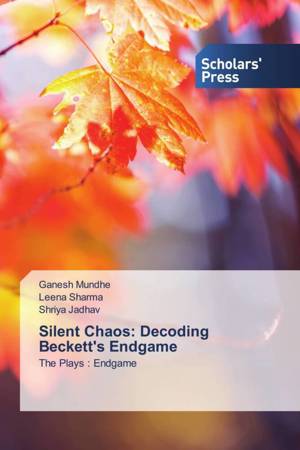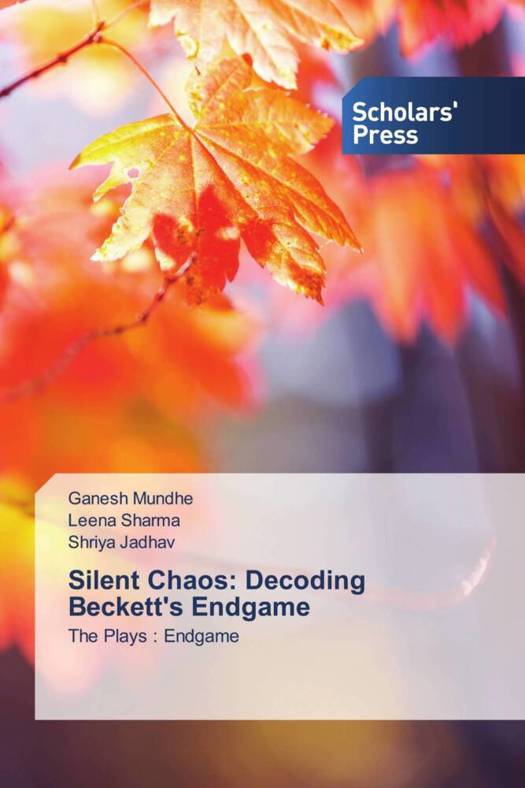
Bedankt voor het vertrouwen het afgelopen jaar! Om jou te bedanken bieden we GRATIS verzending (in België) aan op alles gedurende de hele maand januari.
- Afhalen na 1 uur in een winkel met voorraad
- In januari gratis thuislevering in België
- Ruim aanbod met 7 miljoen producten
Bedankt voor het vertrouwen het afgelopen jaar! Om jou te bedanken bieden we GRATIS verzending (in België) aan op alles gedurende de hele maand januari.
- Afhalen na 1 uur in een winkel met voorraad
- In januari gratis thuislevering in België
- Ruim aanbod met 7 miljoen producten
Zoeken
Silent Chaos
Decoding Beckett's Endgame
Ganesh Mundhe, Leena Sharma, Shriya Jadhav
Paperback | Engels
€ 182,45
+ 364 punten
Omschrijving
The book is about the existence of human beings unfolding within an immense and indifferent universe, one that lacks inherent order or meaning. There is no predetermined morality that defines life as good or bad; rather, human experiences are shaped by individual choices and personal beliefs. Samuel Beckett, profoundly influenced by existentialist thought, posited that in a world governed by chaos and disorder, human existence is primarily a construct of the mind. To Beckett, the external world consists merely of fleeting and fragmented illusions, disjointed images that serve only to distract from the deeper reality of human thought. His plays reflect this philosophy, presenting characters and settings imbued with an overwhelming sense of emptiness. Within this void, the audience is not given meaning but is instead compelled to seek it, drawing significance from what appears, at first glance, to be nothingness.
Specificaties
Betrokkenen
- Auteur(s):
- Uitgeverij:
Inhoud
- Aantal bladzijden:
- 240
- Taal:
- Engels
Eigenschappen
- Productcode (EAN):
- 9783659840241
- Verschijningsdatum:
- 14/04/2025
- Uitvoering:
- Paperback
- Formaat:
- Trade paperback (VS)
- Afmetingen:
- 152 mm x 229 mm
- Gewicht:
- 326 g

Alleen bij Standaard Boekhandel
+ 364 punten op je klantenkaart van Standaard Boekhandel
Beoordelingen
We publiceren alleen reviews die voldoen aan de voorwaarden voor reviews. Bekijk onze voorwaarden voor reviews.









